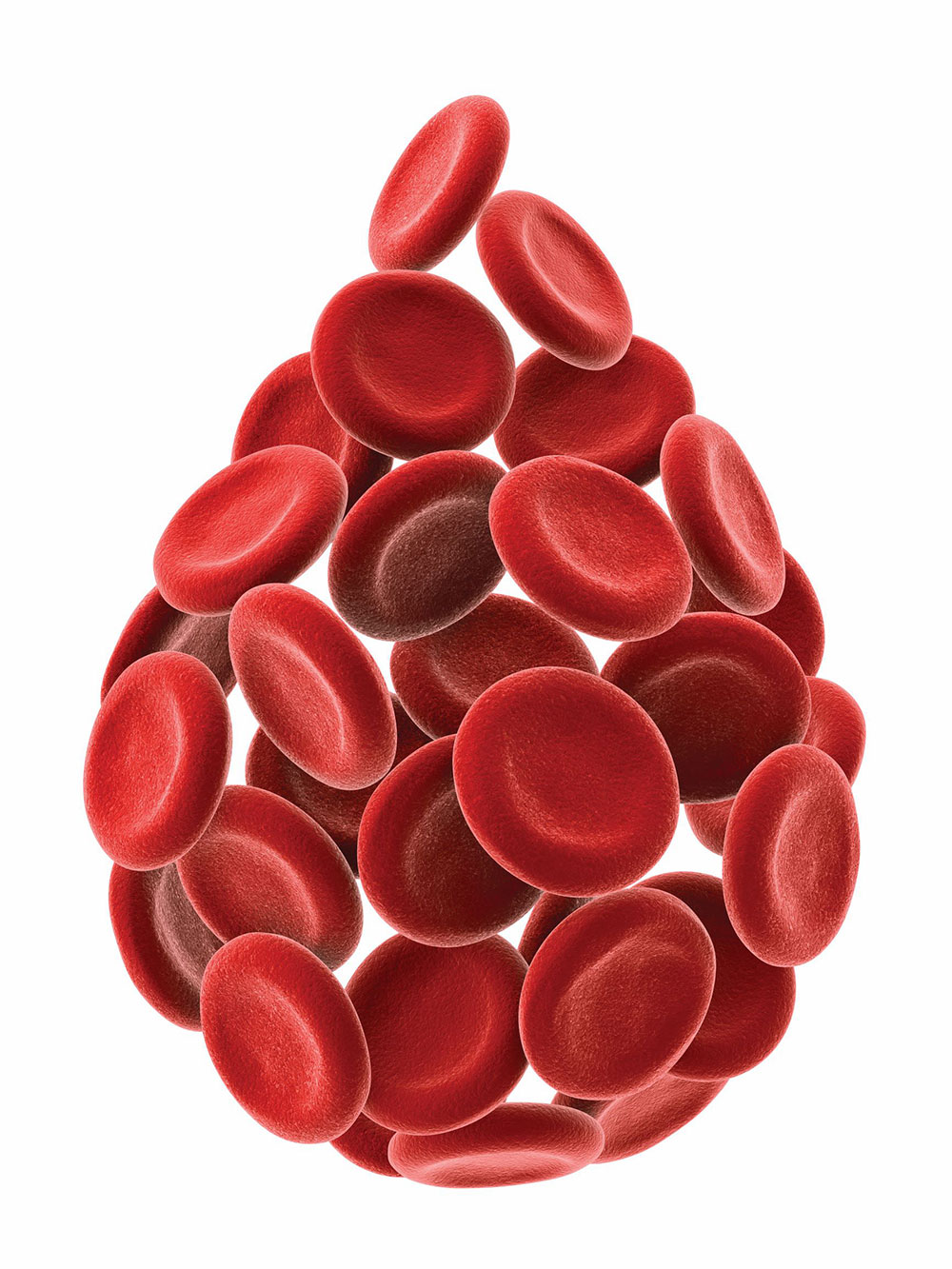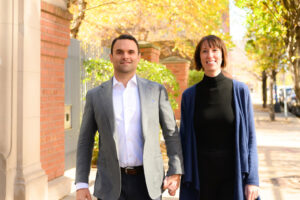The future of lung cancer detection is here, at least if one doctor at Rush University has anything to say about it. Dr. Jeffrey A. Borgia, the director of Rush University’s Cancer Center Biorepository, has spent the last 14 years developing a new, early-detection blood test for lung cancer, and it is now ready for study under a clinical trial. However, biases in the medical field, limited funding, and a lack of specimens have made taking his discovery to the next stage of development a struggle.
According to Borgia, malignant and benign tumors shed molecules which enter one’s bloodstream. Malignancies, however, shed molecules which are unique relative to other cells of the body. This new blood test will likely operate like a blood spot card where patients can prick their finger, mail in their samples, and scientists will look at the blood on the molecular level to determine if one is at high risk of lung cancer. The test will also identify if any tumors detected on the molecular level are highly aggressive, requiring additional treatment not generally found during the standard screening process. “Many surgeons don’t accept biopsy results saying this is a malignancy or not [with] a blood test,” Borgia begins. “[But] with the cells secreting molecules into the bloodstream, if there’s something unique to a tumor, if we see that, we know there’s a tumor someplace.”
Currently, those most at risk of having lung cancer (like people with a long history of smoking) receive a CT scan to detect lesions on one’s lungs which might not be visible during an average X-ray. However, by this point, one is likely showing symptoms of late-stage lung cancer, including chest pain, a lingering cough, shortness of breath, and coughing up blood.
Rather than rely on the development of late-stage symptoms, doctors can begin testing more people at an earlier stage.
That is why a blood test can be both an earlier and less-invasive method of testing for lung cancer. Rather than rely on the development of late-stage symptoms, doctors can begin testing more people at an earlier stage. “Right now, what gets people in to have the CT done is your smoking history and how old [you are], neither of which are very good for figuring out who’s truly at high risk for developing lung cancer,” Borgia says. In an ideal world, the blood test would cost $100 at most and be comparable to the price of a CT, or even less.
Despite the promising opportunities a blood test for lung cancer detection may provide for both fighters and the medical community, there are still numerous hurdles Borgia and his research team has had to face in getting their research to the clinical trial stage. Although lung cancer kills twice as many women as breast cancer, research for the latter receives 30 times the amount of money as lung cancer. “There’s this bias for lung cancer,” Borgia says. “You know, [people say], ‘These people brought it upon themselves. They smoked. You get what you get.’”
 The validity of such statements, however, does not change the fact that lung cancer is the most commonly diagnosed cancer. According to a report in the medical journal Cancer Control, “In 2012, there were approximately 1.8 million new lung cancer diagnoses worldwide accounting for 12.9% of the global cancer burden. Among men, lung cancer remains the most common cancer diagnosis with approximately 1.2 million cases in 2012.” Additionally, in the United States, “lung cancer is the second most common cancer in men after prostate cancer and the second most common cancer in women after breast cancer,” reports Cancer Control. Despite lung cancer being second among both sexes, “it is the leading cause of cancer-related death and accounts for more deaths than prostate, breast, colon, and pancreatic cancer combined,” the journal states.
The validity of such statements, however, does not change the fact that lung cancer is the most commonly diagnosed cancer. According to a report in the medical journal Cancer Control, “In 2012, there were approximately 1.8 million new lung cancer diagnoses worldwide accounting for 12.9% of the global cancer burden. Among men, lung cancer remains the most common cancer diagnosis with approximately 1.2 million cases in 2012.” Additionally, in the United States, “lung cancer is the second most common cancer in men after prostate cancer and the second most common cancer in women after breast cancer,” reports Cancer Control. Despite lung cancer being second among both sexes, “it is the leading cause of cancer-related death and accounts for more deaths than prostate, breast, colon, and pancreatic cancer combined,” the journal states.
However, more than clinical biases, the number one hurdle for Borgia is acquiring research specimens. Borgia pushed to collect samples once CT screening was approved for lung cancer detection. “CT screening, unfortunately, has not caught on in the way everyone hoped it would,” he says. “At Rush, we have the potential of screening up to 300 patients per week, and we’ll capture maybe ten patients and get them screened and get a blood test for them.”
Borgia claims this issue is primarily due to overburdened primary care physicians and a lack of access for patients to medical facilities. “Everyone’s stretched way too thin [to] take the extra time to go through the process of identifying the appropriate patients,” he says. “That gap is a big problem, and it’s not just at Rush; it’s across the country. Everyone’s talking about how to fix this, and some very serious policies need to change to [do that].” Overcoming such a hurdle involves informing and training medical professionals on what to look for in patients as they have more direct access to the sort of patients needed for the clinical trial.
“What if you’re overseas? What if you’re in the middle of a cornfield in Nebraska? What if you’re on the South Side of Chicago and you don’t want to go [or] don’t have transportation?” Borgia asks. “All those factors come into this, and it’s my goal to extend the idea of lung cancer screening to all these underserved populations because some of these populations have a much higher mortality rate than the predominantly Caucasian populations that come to places like Rush or tertiary medical centers.”
According to Cancer Control, data from the Surveillance, Epidemiology, and End Results Program (SEER) revealed Black Americans have a higher incidence and mortality rate for lung cancer than any other racial population, which does not align with global numbers which shows that the lowest rates of lung cancer are in western and central Africa. Survival rates are even grimmer. As Cancer Control reports, “Black patients were 66% less likely to receive timely and appropriate treatment than White patients, and Black men were least likely to receive resection (22% for Black men versus 43.7% for White men).”
Utilizing a blood test for lung cancer detection is not merely a medical innovation; it is a life or death issue affecting the most marginalized and disenfranchised populations in this country.
The authors also reported that “Black patients were 34% less likely to receive timely surgery, chemotherapy, or radiation for stage III disease and were 51% less likely to receive chemotherapy in a timely fashion for stage IV disease relative to White patients.” Utilizing a blood test for lung cancer detection is not merely a medical innovation; it is a life or death issue affecting the most marginalized and disenfranchised populations in this country. “The idea is to try to roll it out to the people who need it the most, and make it as convenient as possible,” says Borgia.
And if that becomes successful, Borgia envisions a future where his lung cancer blood test can develop into a pan-cancer blood test. He is currently collecting samples and genomic data to one day make this a reality. “If [a pan-cancer test] is likely to happen, now is the time it would happen,” Borgia says.







